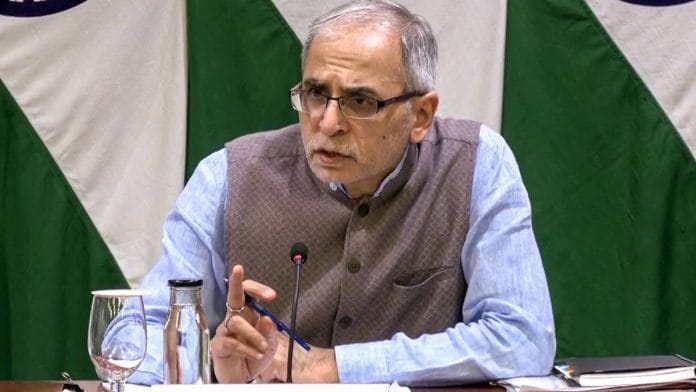New Delhi: Former foreign secretary Vinay Mohan Kwatra has been officially appointed as India’s next ambassador to the US, according to an announcement by the Ministry of External Affairs (MEA) Friday. The official agreemo, a letter of acceptance from the host country, has been received.
The post in Washington DC has remained vacant since January, when then-ambassador Taranjit Singh Sandhu retired from the service.
Kwatra’s appointment comes at a time when ties between New Delhi and Washington are witnessing multiple challenges. More so, he will take up the posting during an election year in the US.
US President Joe Biden is seeking re-election against his Republican rival Donald Trump, who survived an assassination attempt last weekend that saw his national lead over Biden in the election grow, according to recent polls.
Apart from the election year, Kwatra’s posting comes amid concerns in the White House about Prime Minister Narendra Modi’s visit to Russia earlier this month. The trip coincided with preparations for the NATO summit in Washington DC, and Modi and Russian President Vladimir Putin’s meeting also fell on the day when a missile struck a children’s hospital in Kyiv.
Last week, US Ambassador to India Eric Garcetti delivered a strong message from Washington DC when he said at an event: “In times of conflict, there’s no such thing as strategic autonomy.”
In November 2023, the US Justice Department made public the indictment of an Indian national, Nikhil Gupta, and a government agent allegedly behind a foiled assassination attempt on US national Gurpatwant Singh Pannun.
Top US officials like National Security Advisor Jake Sullivan and Deputy Secretary of State Kurt Campbell visited Delhi in recent months where concerns about Modi’s visit to Moscow were aired.
After the visit to India last month, Campbell held a press briefing where he said the Biden administration has “consistently asked for updates” on the high-level committee set up by New Delhi last year to investigate the allegations about the involvement of Indian officials in the Pannun murder plot.
The Modi government instituted a high-level inquiry committee last November to probe the claims raised by American authorities. New Delhi has maintained that the US has provided specific information that requires a proper investigation, unlike in the case of Canada — another country accusing Indian officials of being linked to the killing of one its citizens and Sikh separatist, Hardeep Singh Nijjar.
That said, last June, the Biden administration rolled out the red carpet for Modi on his first official state visit to the US. This made him only the second prime minister of India to make such a visit, after Manmohan Singh.
Both sides hailed Modi’s visit as “historic” and major outcomes included a slew of defence deals, including a joint production plan for a jet engine to the assembly of MQ9B High Altitude Long Endurance (HALE) drones. There were also strategic investments from private players, such as American tech firm Micron Technology’s pledge of $825 million to build a semiconductor assembly and test facility in India.
On the trade front, the two governments agreed to terminate six disputes at the World Trade Organization (WTO) after Modi’s visit to the US. There was also a decision by India to remove tariffs on 28 US goods.
(Edited by Nida Fatima Siddiqui)
Also Read: India-US ties reaching a turning point. But General Electric won’t ever get us complete tech






